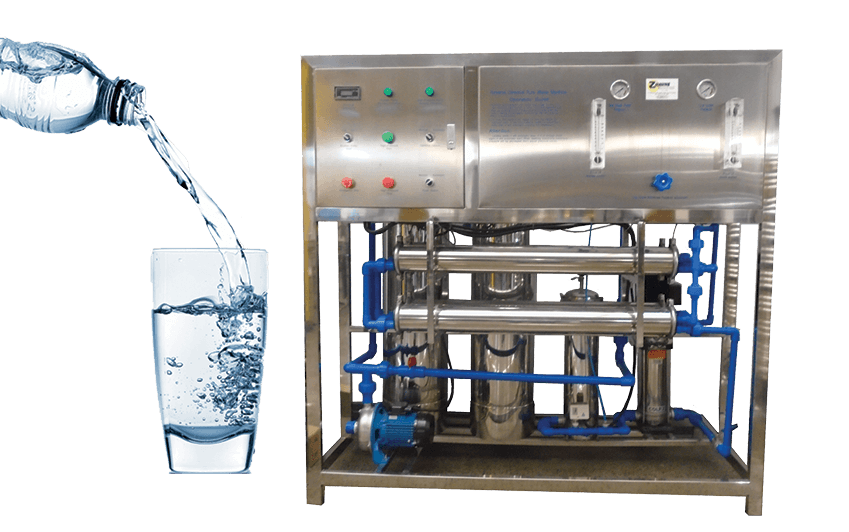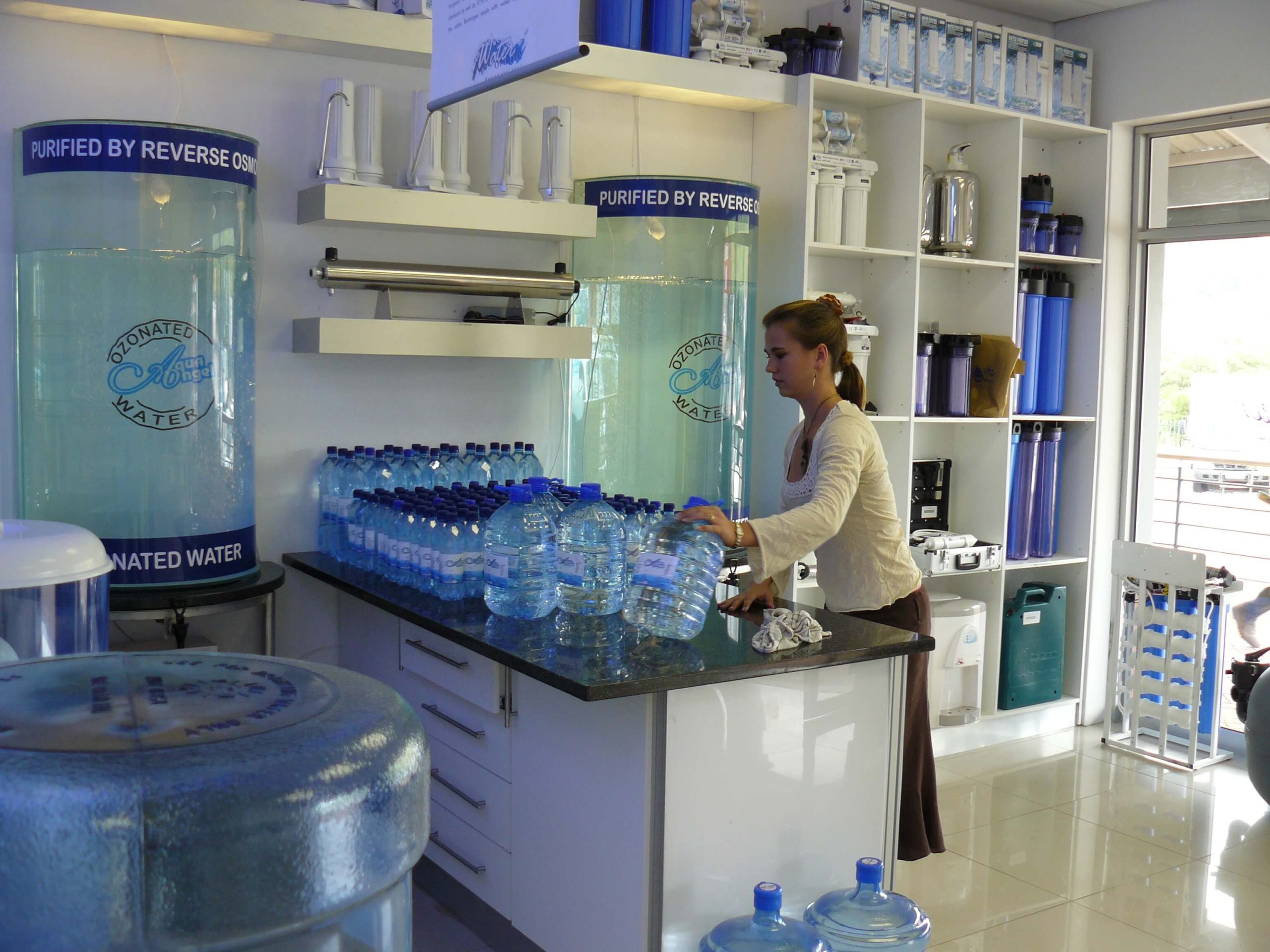
How to Start a Water Purification Business: A Comprehensive Guide
In today’s world, where access to clean water is becoming increasingly crucial, starting a water
In today’s world, where access to clean water is becoming increasingly crucial, starting a water purification business can be both lucrative and impactful. This guide will walk you through the essential steps to launch your own venture in this growing industry.
Understanding the Market

Before diving into the specifics of starting your water purification business, it’s vital to grasp the current market landscape. The global water purification market is expected to grow significantly in the coming years, driven by:
- Increasing awareness of water pollution
- Growing health concerns
- Stringent government regulations on water quality
- Rapid industrialization in developing countries
This creates a prime opportunity for entrepreneurs looking to make a difference while building a successful business.
Defining Your Niche
The water purification business encompasses various sectors. To stand out, you’ll need to identify your specific niche. Consider focusing on:
- Residential water purification systems
- Commercial and industrial solutions
- Portable water purifiers for outdoor enthusiasts
- Municipal water treatment technologies
- Specialized purification for specific industries (e.g., pharmaceuticals, food processing)
Choosing a niche allows you to tailor your expertise and marketing efforts effectively.
Developing Your Business Plan

A solid business plan is the foundation of any successful venture. For your water purification business, include the following key elements:
- Executive summary
- Company description
- Market analysis
- Organization and management structure
- Products or services offered
- Marketing and sales strategies
- Financial projections
Your business plan will serve as a roadmap and can be crucial when seeking funding or partnerships.
Securing Funding
Starting a water purification business can require significant capital. Consider these funding options:
- Personal savings
- Bank loans
- Angel investors
- Venture capital
- Crowdfunding platforms
- Government grants for eco-friendly businesses
Be prepared to present a compelling case for your business to potential investors.
Legal Requirements and Certifications
Ensuring compliance with legal requirements is crucial for a water purification business. Key steps include:
- Registering your business entity
- Obtaining necessary licenses and permits
- Securing certifications from relevant authorities (e.g., NSF International, Water Quality Association)
- Adhering to local and national regulations on water treatment
Consult with a legal expert to ensure you’re meeting all requirements in your jurisdiction.
Choosing Your Technology and Suppliers
The heart of your water purification business lies in the technology you employ. Research and select:
- Filtration methods (e.g., reverse osmosis, UV purification, activated carbon)
- Equipment suppliers
- Installation partners (if applicable)
- Maintenance and service providers
Ensure that your chosen technologies align with your target market’s needs and comply with industry standards.
Building Your Team
As your water purification business grows, you’ll need a skilled team to support operations. Key roles may include:
- Water treatment specialists
- Sales and marketing professionals
- Customer service representatives
- Installation and maintenance technicians
- Administrative staff
Invest in training to ensure your team stays updated on the latest water purification technologies and industry trends.
Marketing Your Water Purification Business
Effective marketing is crucial for attracting customers and building brand awareness. Consider these strategies:
- Develop a strong online presence
- Create an informative website
- Utilize social media platforms
- Implement SEO strategies to improve visibility
- Leverage content marketing
- Start a blog about water quality and purification
- Create educational videos and infographics
- Offer free water quality assessments
- Network within the industry
- Attend trade shows and conferences
- Join professional associations
- Collaborate with complementary businesses
- Implement local marketing tactics
- Sponsor community events
- Offer demonstrations at local businesses
- Partner with eco-friendly organizations
- Utilize customer testimonials and case studies
- Showcase successful installations
- Highlight the benefits experienced by your clients
Providing Exceptional Customer Service
In the water purification business, building trust is paramount. Prioritize customer satisfaction by:
- Offering clear explanations of your products and services
- Providing prompt and professional installation
- Implementing a robust maintenance and support program
- Addressing customer concerns quickly and effectively
- Continuously seeking feedback for improvement
Staying Ahead of Industry Trends
The water purification industry is constantly evolving. To maintain a competitive edge:
- Invest in ongoing research and development
- Attend industry conferences and workshops
- Subscribe to relevant publications and journals
- Collaborate with academic institutions on water treatment research
- Stay informed about emerging contaminants and treatment methods
Scaling Your Water Purification Business
As your business grows, consider these expansion strategies:
- Diversifying your product line
- Expanding into new geographical markets
- Offering franchising opportunities
- Developing proprietary water purification technologies
- Exploring partnerships with larger corporations or government entities
Conclusion
Starting a water purification business can be a rewarding venture that combines profitability with social responsibility. By following this comprehensive guide and staying committed to providing clean water solutions, you can build a successful enterprise that makes a positive impact on communities and the environment.
FAQ
Q: How much capital do I need to start a water purification business?
The required capital can vary widely depending on your chosen niche and scale. A small-scale residential water purification business might start with $50,000 to $100,000, while larger commercial operations could require several million dollars in initial investment.
Q: What are the most common water purification technologies?
Common technologies include reverse osmosis, ultraviolet (UV) purification, activated carbon filtration, and distillation. The best choice depends on the specific contaminants present and the scale of purification needed.
Q: How can I ensure the quality of my water purification products?
Obtain certifications from recognized authorities like NSF International or the Water Quality Association. Regularly test your products, maintain strict quality control measures, and stay updated on industry standards and regulations.
Q: What are the biggest challenges in the water purification business?
Common challenges include high initial costs, staying compliant with evolving regulations, educating consumers about water quality issues, and competing with established brands. Continuous innovation and excellent customer service are key to overcoming these challenges.
Q: How can I differentiate my water purification business from competitors?
Focus on a specific niche, offer superior customer service, develop innovative technologies, provide comprehensive water quality solutions beyond just purification, and emphasize your commitment to sustainability and community health.
You Can Also Read Here How to Choose Between Faire and Shopify for Your Wholesale Business
